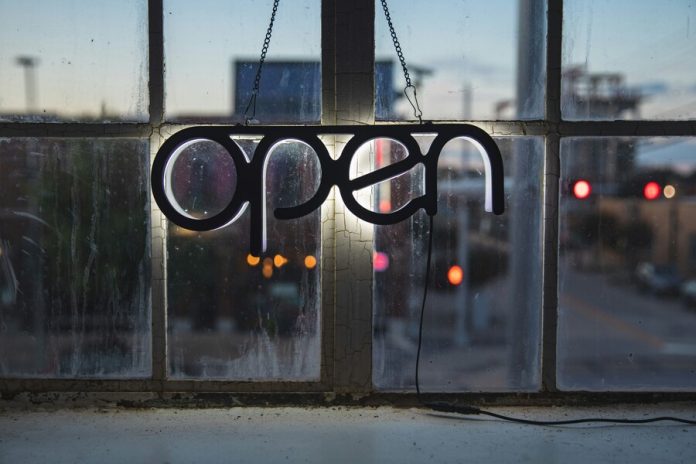
In August 2023, after nine years of offering Terraform under an open-source license, its creators, Hashicorp, announced that the widely used infrastructure-as-code (IaC) tool would be shifting to a less permissive Business Source License (BSL).
The change restricted how organizations, including competitors, could use and distribute Terraform, effectively ending its status as a truly open-source project. The move sparked outrage among the developer community, leading to the creation of OpenTofu as a fully open and community-driven alternative.
In terms of functionality, OpenTofu is nearly identical to Terraform, as it was forked from the same codebase. What sets it apart is its truly open license, and a promise that it will stay open forever. Let’s examine how OpenTofu’s rise impacts the open-source landscape, what it signals about the future of software governance, and the lessons organizations can take from this shift.
How OpenTofu Became a Symbol of Resistance
The emergence of OpenTofu reflects a growing frustration with the increasing corporization of “open-source” projects. As businesses and developers rely more on these tools, sudden licensing changes can significantly disrupt workflows and create operational risk.
For years, Terraform served as a cornerstone of infrastructure automation, encouraging innovation and collaboration among hundreds of its users and code base contributors.
The sudden shift in licensing served as a wakeup call about the fragility of corporate-controlled projects, as a single company can unilaterally impose fundamental restrictions on a widely used tool.
This realization sparked many in the IaC community to seek an alternative, resulting in the rapid development of OpenTofu just a month after the licensing change. The decisive reaction became a symbol of how users are no longer willing to tolerate the risk of sudden changes in their essential software.
A Shift Towards Community-Driven Open Source
OpenTofu is just one example of a broader shift towards community-driven projects that ensure long-term stability and assurance for users who rely on open-source software.
We saw how quickly DeepSeek, an open-source AI model, rose to the top of the app download charts as an alternative for proprietary LLMs like ChatGPT.
In the past, corporate-backed open source was seen as a win-win: companies provided funding, resources, and stability, while end users helped with community contributions. But, with a notable trend of companies imposing restrictive licenses and limiting commercial use, that trust is no longer there.
Now, all eyes are on truly decentralized projects with a community governance model, and thanks to its Linux Foundation backing, OpenTofu has emerged as a prime example.
The Importance of Governance and Transparency
Governance and transparency are the key ingredients of a sustainable open-source ecosystem. If one of these ingredients gets lost along the way, users usually face the consequences.
Neutral governance models, such as those supported by the Linux Foundation, CNCF, and the Apache Software Foundation, provide a structured framework that promotes fair, transparent decision making that benefits all users.
Contributors from different organizations can come together to work on development, knowing that their efforts prioritize the well-being of the project, rather than a single entity’s monetization efforts. Open source projects that adopt these governance models are better positioned to sustain long-term stability with very little risk of outside influence.
Organizations relying on open-source software must consider governance models as an important factor when evaluating their dependencies.
Even if a project has amazing features, its long-term viability depends on who controls it. When a single corporation holds all decision-making power with little transparency or community input, there’s a high probability that future changes will prioritize corporate interests over the needs of end users.
Licensing Wars and Their Ripple Effects
Sudden licensing changes in open-source software can have significant negative consequences, not just for the users, but also the corporations imposing these changes.
Within weeks of HashiCorp’s decision to relicense Terraform, dozens of long-time users rallied around OpenTofu and other alternatives. While Terraform still remains the market leader in infrastructure automation, many organizations have since abandoned the platform due to the risk of vendor lock-in and potential future restrictions.
One way for organizations to mitigate the risks of sudden licensing changes is to diversify their technology stacks. Avoiding vendor lock-in is a core practice in traditional business supply chains, and there is no reason for that to change when it comes to open-source projects.
Never fully rely on a single vendor. Diversify the tools you use so you always have full control over your digital operations and have the flexibility to adjust when unexpected changes occur.
Conclusion
The creation of OpenTofu marks a significant shift in the open source ecosystem, as independent, community-backed projects are preferred over those controlled by large corporations.
Businesses must carefully consider their open-source strategies to avoid situations where their reliance on a single vendor ends up restricting them rather than empowering their operations.
The important factor is the governance structure, and whether the project is truly open and community-driven. While it may appear otherwise on the surface, many corporate-backed projects retain a high degree of centralized control.
Disclaimer: This article contains sponsored marketing content. It is intended for promotional purposes and should not be considered as an endorsement or recommendation by our website. Readers are encouraged to conduct their own research and exercise their own judgment before making any decisions based on the information provided in this article.

































